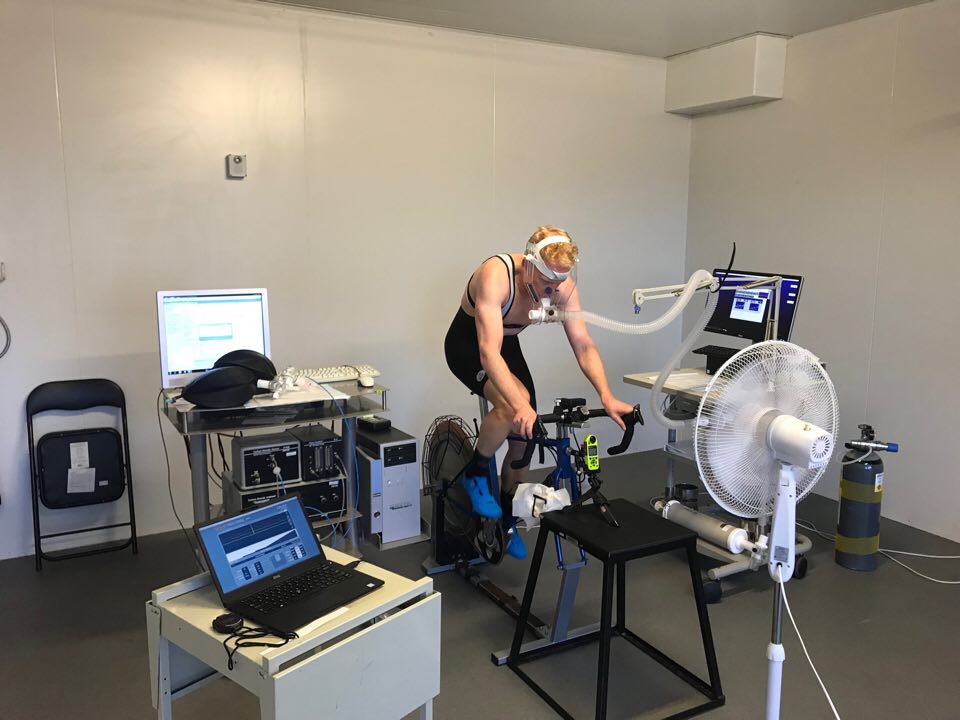Suzanne Lazaroo
19 November 2019: Looking to help athletes beat the heat, a University of Canberra study is investigating the building blocks of heat stress – ambient temperature, humidity, solar radiation and air velocity – and how they affect exercise performance.
UCRISE PhD candidate Felicity Bright is researching how our body responds to these specific environmental parameters, and how much – or how little – each factor can influence thermoregulation, physiological responses and consequently, exercise performance.

“No other study has isolated the influence of each of these parameters on self-paced exercise performance in a controlled and graded manner,” she said.
This research is crucial to building a foundation of knowledge that can inform future strategies for athletes, coaches and support staff.
“It’s important to drill down and really understand these thermophysiological responses, so that any future recommendations on how to train and compete in the heat can be accurate and valuable,” said Ms Bright.
The environmental chamber at UCRISE can manipulate not only ambient temperature, but also humidity levels. Radiant heat load will be simulated in the laboratory via solar lamps, with mechanical fans used to alter facing wind speeds.
Ms Bright is currently looking for participants for the subsequent phase of her study which will examine the effect of humidity on thermophysiological responses and time trial performance.
She is looking for well-trained male cyclists and triathletes, aged between 18 and 55 and cycling a minimum of 250km per week.
Each participant will take part in six two-hour testing sessions across three weeks at the UCRISE environmental chamber. Testing involves two familiarisation sessions and four 30km cycling time trials in varying humidity levels.
Involvement in this research will allow participants to be exposed to training and research facilities typically reserved for elite athletes. Participants will also receive a comprehensive performance and physiological profile including their VO2max results (the measurement of the maximum amount of oxygen a person can utilise during intense exercise).
To contact Ms Bright, send an email to Felicity.Bright@canberra.edu.au.


